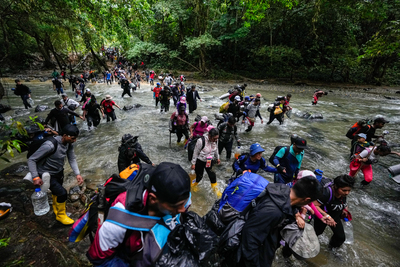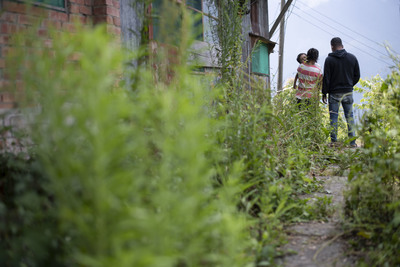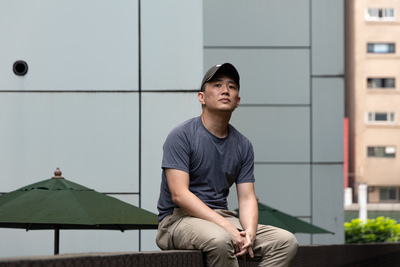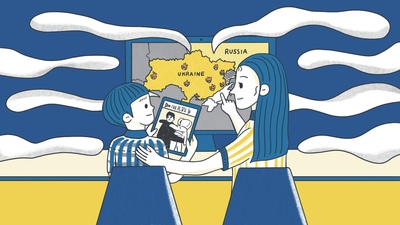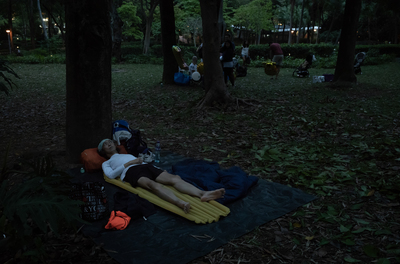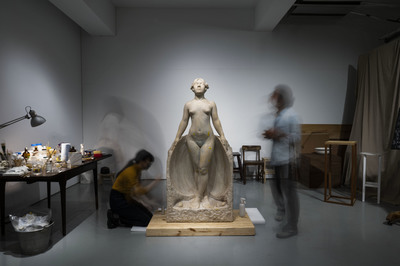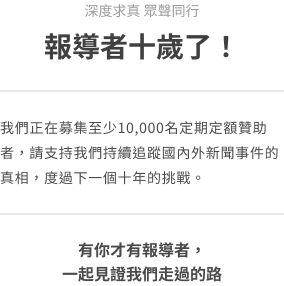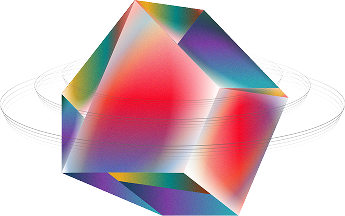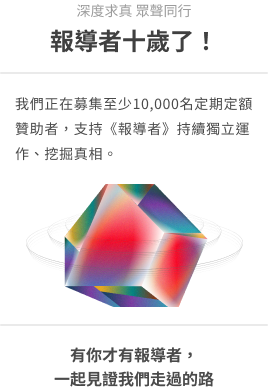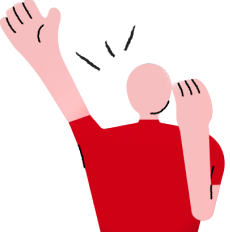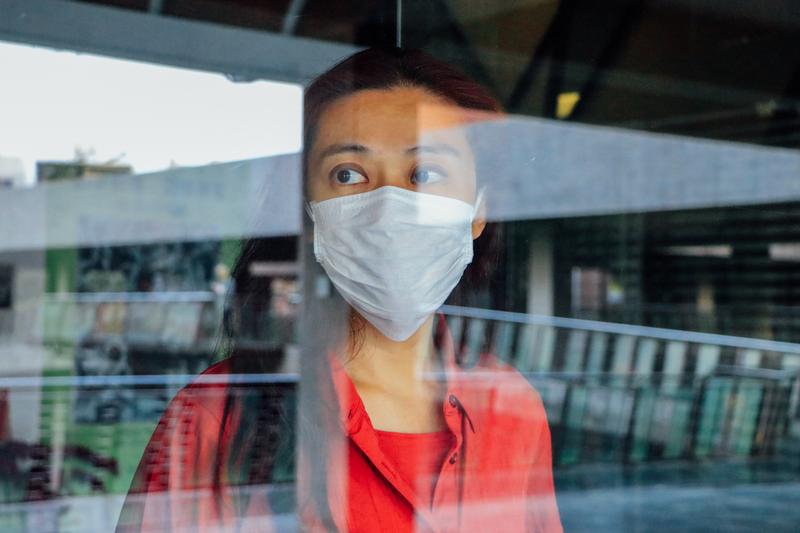
Australian musician Brett Dean's diagnosis of COVID-19 on March 5 2020 shocked Taiwan's art world. Cho Hsiao-ching (卓曉青), the first violinist of the National Symphony Orchestra shares her personal journey as an artist, mother and victim of the pandemic, following her experience of self-health management.
Over the 228 Memorial Day long weekend of 2020, Taiwan’s National Symphony Orchestra (NSO) performed with Australian violinist and composer Brett Dean. The event was supposed to comfort music fans through the difficult times of the pandemic. But when Dean arrived home in his native Australia diagnosed with COVID-19 on March 5, 2020, everything changed.
Dean had stayed in Taiwan for nine days and came into contact with 420 people, including 147 NSO members, hotel staff, drivers, journalists. All of them had to quarantine at home. Luckily, all of the 30 NSO members tested negative.
According to Taiwan’s Communicable Disease Control Act, the identities of individuals who are diagnosed or quarantined for observation are kept private to prevent discrimination. But for the NSO members who shared the stage with Dean, the suspicious looks and labels which were cast on them disrupted their lives. The audiences that had always cheered them with applause were now looking away. The Reporter interviewed Cho Hsiao-ching (卓曉青), the National Symphony Orchestra’s first chair violinist. At the time of being interviewed, Cho had finished her self-health management after sharing the stage with Dean. As the pandemic spread, she was not only an ordinary laborer who struggled among the audience's expectations, the operation of the Orchestra, and the protection of the performers, she was also a worried mother.
The following is an interview excerpt with Cho, written in the first-person:
At the beginning of February 2020, Taiwan’s Ministry of Education announced that the winter vacation for students below high school would be extended for two weeks. My third-grade daughter was over the moon when she learned that.
In retrospect, that was when the whole mess [of COVID-19 infections at the NSO] started. As the NSO prepared for its first concert after the holiday break, confirmed cases of COVID-19 were beginning to pop up in different countries. There were also daily updates about the nature of the virus, including transmission, droplet exposure, and talk of asymptomatic carriers. From the beginning, the government set a high standard for its approach to the pandemic. I could feel that the atmosphere this time was quite different from previous pandemic outbreaks.
I felt uneasy. The working conditions for the Orchestra are unique. The audience and NSO members are packed tightly together. With nearly 100 NSO members sitting side by side, rehearsing and playing in an airtight concert hall, was it safe to be in a place like this?
The Boston Symphony Orchestra of the US had then canceled its tour in Asia, including Taiwan. But Taiwan’s Ministry of Culture and Taiwan Centers for Disease Control had not halted domestic art and cultural events. A colleague and I were the first to express our concerns. We called for raising the level of the pandemic prevention approach. The National Theater and Concert Hall took the temperatures of the audience. The Orchestra also took our temperatures before starting to work. But we knew that having a fever is not an indispensable indication of COVID-19. Having a normal body temperature did not mean that one is not contagious. Even though we kept a distance from the audience, we were still worried that the virus would mutate and adopt a stronger transmission method.
After constant appeal, the Orchestra and the members finally reached an agreement: It was allowed to wear a mask during rehearsal. Some string musicians would wear masks during the official performance. But we still had no clue how to protect the wind musicians properly.
An issue then emerged: Performing on stage put the performers in danger of infection, including wind musicians and singers who could not wear masks during the performance, and dancers and theater actors who had a lot of physical contact with each other. When people discussed the issue of how to prevent the pandemic in art and cultural events, the focus was usually on how to protect the audience. Few people investigated how performers can effectively protect themselves.
I called and wrote to the competent authority in the hope of getting answers. The response I got was "we would do everything according to the law.” I also consulted a lawyer. I learned that even though the nature of our work is special, the mechanism the Orchestra had adopted did comply with the law, including checking the members’ history of exiting and entering the country and taking everyone’s temperature every day before work.
In mid-February, it was decided to postpone the annual pilgrimage of Dajia Mazu (大甲鎮瀾宮媽祖遶境進香活動). It is the biggest pilgrimage in Taiwan and usually attracts at least 150,000 followers to join. The whole pilgrimage lasts for 9 days and travels for around 340km in total between Mazu temples in different cities. However, there was still hardly any attention nor discussion from the society whether indoor art and cultural events should be rescheduled. When I rehearsed with my mask on, I was not angry. But I found myself suffering from bitterness in silence -- I was in a difficult position. Even though performers have the right to ask for workplace safety, as soon as the events get postponed or canceled, it would immediately lead to our personal financial hardship. It is lucky to be working at the NSO. Our salary will not be affected due to the change of the schedule. If I were a performer working for a private organization, I might have lost all the upcoming income. Employees care about health while employers care about the survival of the Orchestra. Now the society and the government are talking about “preemptive deployment” (超前部署) regarding COVID-19 measures, but how much in the front we can get when the decisions could influence the life and death of an organization and a group of workers?
During the days we rehearsed with Dean, I got scared when I heard him coughing while secretly hoping that I was only making a fuss about nothing. When we all went on the stage on February 28, 2020, our conductor Shao Chia Lü gave the audience a heartwarming pep talk before encore, hoping that music can bring people strength during this difficult time. His talk was very touching. It sounded to me that Lü was choking with sobs. Many people in the audience were in tears for the rest of the show. At this critical moment in the middle of the pandemic, people who still attended concerts were mostly music lovers. They could find comfort in music. Serving the audience with music is the musicians' duty. I believe Lü also interpreted the responsibility of the musician in this way. I would have shed some tears with the audience if I had heard this before the pandemic. This time I felt much more like the violinist on Titanic, performing music while sinking into the sea with the ship.
I have been working at the NSO for 22 years, including during the time of SARS. The epidemic and the anxiety of society were equally serious back then. When I looked at the audience with their masks on at the concerts, I had no fear but felt like being part of a special historic moment. But 17 years later, facing the same sea of masks, I got caught in constant fear all the time.
I had always been an onlooker of the operations of the NSO. I only wanted to concentrate on the music and hardly said anything in the group chat. But ever since the COVID-19 outbreak, I have been constantly playing the bad cop in the group, along with a colleague suggesting the NSO increase the pandemic prevention measures and carefully evaluate the plan of overseas tours. This change in attitude surprised me. I always thought the stage and music is the passion of my life. But this pandemic has led to a change of my heart.
I could only weakly admit to myself: I was still young during SARS so I only needed to take care of myself. Now I have become a mother. In my mind, the threat of the virus exceeds the greatness of music. For my daughter, I have to voice and protect myself. I cannot let myself drown holding my violin.
On the evening of March 5, I was eating an oyster omelet outside. The television was broadcasting an impromptu press conference by the Central Epidemic Command Center (CECC). When I saw the (then) Minister of Culture Li-Chun Cheng (鄭麗君) on the screen, I thought, "we are screwed."
The moment the CECC announced Dean had tested positive for COVID-19, it was as if a bomb set off right in front of my face. One question after another exploded like a chain reaction in my mind: Should I quarantine now or do self-health management? Is my daughter still going to school tomorrow? How am I supposed to explain this to my family? What if I am infected, will I have done them harm and exposed them to the virus already?
The NSO executives had not had time to tell us what to do, and our work group chat was already ringing off the hook. Everyone was terrified: How could we have become the center of the news that we paid attention to so closely?
Even before the CECC finished the press conference, my phone was already overflowing with almost 100 messages. A friend who dined with me a few days ago asked if she needed to self quarantine. I told her I do not even know yet if I need to quarantine myself. I was the victim and was still feeling like everything was spinning around me. Why did I suddenly need to explain myself to so many people for things I did not understand?
I told myself to calm down. First, I called to cancel my daughter's routine tennis class so she would not become the spotlight among her peers. Then I started to think: she is at her grandparents' now, should I pick her up? Would I be harming her and two elderly people if I do so? Would my daughter be crowded out by her classmates? Who have I met recently and should I inform them one by one? I was overwhelmed by the waves of fear. I wanted to cry but I could not bring myself to. Before I realized, I had already been sitting lifelessly at the oyster omelet place for two hours. I did not know where to go.
Then I received a notice for 14-day self-health management. I decided to temporarily move to the suite which I rented for my exam preparation. I returned home after making sure that the NSO members were safe. My landlord already saw the news about the NSO. He slid me a note suggesting me not use the shared bathroom with other tenants.
I called my daughter to tell her that there were some COVID-related issues at mommy's workplace, and I would not be picking her up in the coming days to keep her safe. She immediately burst into tears. We read an educational picture book about COVID-19 before so she has some understanding of pandemic prevention. But right now she just could not understand why mommy could not come home. The next day at school, she called me at the gate crying and asked if I had a fever. I said no. "Are you sick?" I said no. "Then why can't mommy be here?" I told her that I have to wait until everyone is OK and healthy so that I would feel safe to meet her. She kept asking "When? When?" Suddenly I felt that this was the furthest distance in the world: My daughter’s tears broke my heart but I could not give her a hug.
Fortunately, my daughter did not receive any side-eye. On the contrary, I was the one who experienced that. I did not know if it was just all in my head, but I started to feel weird all my body. The dryness and itchiness I usually have in winter suddenly became more obvious and it frightened me. I went to an ENT clinic and the doctor got startled after learning that I worked for NSO. Luckily, he did not find anything wrong with me after the check-up.
I asked the doctor, “If I have symptoms during my self-health management, can I come here to get tested?” He suggested me going to a hospital instead. If I got tested positive for COVID-19, the clinic would need to close for 14 days.
Perhaps other patients heard the conversation between the doctor and me. Before I left, I heard some patient nervously asking the doctor why someone was asking about self-health management. The doctor replied that the person worked at the NSO. The patient anxiously asked, “Then would it matter that I sat in the same room she was in before?”
People used to reply with admiration when they learned that I worked at the NSO. Now they would immediately run away from me. What an irony. Before I even got my test result, I had already become a human virus. Diseases not only affect our health but also induce distrust among people.
The government describes art and culture organizations as the embodiment of the nation. But whenever disasters hit, the subsidies these groups would receive are always the lowest among all kinds of stimulus measures. The Minister of Culture invested 1.5 billion TWD in the relief package this time, which was chicken feed compared to the 60-billion-TWD national special relief budget. When performers put a halt to their work out of health concerns, or when the box office flops due to the pandemic, would this package be enough to assist more than 6,000 organizations around the country in surviving the hit?
When the Boston Symphony Orchestra decided to cancel their tour in Asia, their announcement wrote in bold on the official website: “With the health and well-being of the musicians and entire tour party . . . always of foremost concern . . . we have canceled the entire tour,” even though it was a tough decision. However noble art can be, it is still less than lives and humans. An art and culture organization that focuses on the bigger picture would make decisions centered on humans. Since the beginning of this incident, I have been asking myself: What needs to be taken into consideration by the person in charge of an art and culture organization? How to balance between revenue and the safety of the orchestra members? How would the intervention and support from the government affect the decisions of the person in charge?
These are big questions that have no correct answers. But this pandemic may be an opportunity that pushes us to make inquiries into the core of the issue: How do the state and society position art workers? Do they value the livelihood of the art workers in normal times? How can this group of people who have special conditions of employment be allowed to have safety and safeguard at their workplace?
To read the Chinese version of this article, please click:〈當疫情燒上國家音樂廳舞台:一個小提琴家、勞工與母親的自主健康管理觀察〉
深度求真 眾聲同行
獨立的精神,是自由思想的條件。獨立的媒體,才能守護公共領域,讓自由的討論和真相浮現。
在艱困的媒體環境,《報導者》堅持以非營利組織的模式投入公共領域的調查與深度報導。我們透過讀者的贊助支持來營運,不仰賴商業廣告置入,在獨立自主的前提下,穿梭在各項重要公共議題中。
今年是《報導者》成立十週年,請支持我們持續追蹤國內外新聞事件的真相,度過下一個十年的挑戰。

